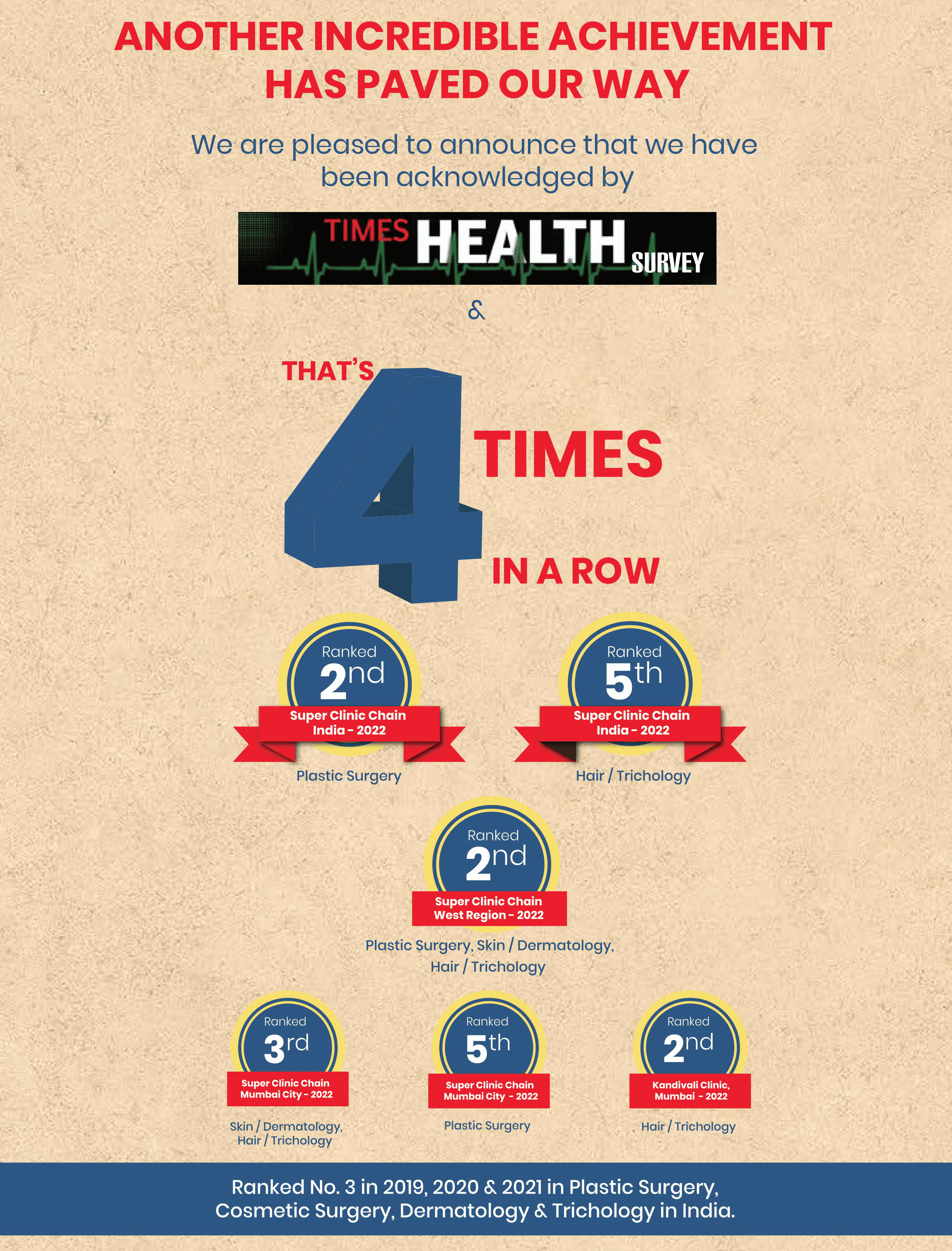The monsoon said that the weather was humid as well as humid. Since the monsoon is a relief from the summer, the breeze feels cool and we all like to sit in the cool breeze and listen to the tip of the rain drops. Of course, in the rainy season, you also need to take special care of the skin to avoid allergies to the skin or to prevent infection. But in the cities where we live, the rainfall drops are not as clean as before. The pollutants in the air are mixed with rainwater and this rain brings with it many outbreaks and allergies. Children are at a higher risk of becoming infected than adults. Bulls impatigo, a fungal infection of the skin and hair, fungal infections, folliculitis and allergies are the most common problems in skin rains. We know exactly what the problems are and how to remedy them this monsoonDr. Rinky Kapoor, a cosmetic dermatologist and dermatologist, from The Aesthetic Clinics . You too should know about all these things.
Allergies -
Skin problems can cause acne, redness and itching of the skin. Knowing exactly what allergies are. Both environmental and human factors are responsible for the increased incidence of skin allergies in the rainy season.
3 Environmental allergens include fungi, pollen, dander, flowers, and insects.
â— Manmade allergic ingredients include dust, microbes, pet skin components, air pollutants, etc.
Individuals with minor allergies, as well as patients with asthma and eczema, may have allergic reactions in the rainy season. An even more exacerbating factor of skin allergies is that once the itching begins, it does not leave the person without itching. This itching causes damage to the epidermis, the outer layer of the skin, leaving the skin exposed. Such exposed areas are free ranches for fungi and bacteria to breed.
Allergies to clothing, shoes and rain showers
Clothing and footwear are always wet during the rainy season. Wet clothes and wet shoes are a favorable condition for allergies. Especially if someone goes out for work and gets stuck in the rain and stays in the wet clothes and footwear for a long time, then there is an allergy. Synthetic fabrics contain chemicals, and wet clothes can rub the body and cause allergies to the skin. In the rainy season, many complain that wet clothes are prone to itching. Raincoats and jackets, gloves are made from synthetic materials. Bad skin allergies can occur if they are in direct contact with the skin. These allergies can cause fungal infections. There is a higher risk of fracture, especially of the folds of the body, such as the elbows of the hands, the back of the knees.
The wet weather in the rainy season makes the feet sweaty and the boots wet and sticky. Roads are filled with muddy water and mud. These water and mud fall into the crib easily. Such wet footwear is worn by some people, and as a result their feet become dirty, stinky. No need for anything else to become allergic. Rubber or plastic footwear is a component used for binding, gum, adhesives, essential components of the process, and dermatitis through the action of water. It is a painful and worsening form of allergy.
Molds and allergies
Molds are a type of fungus that grows vigorously when it comes to food and water sources. The fungus can thrive on wet walls, unnecessary stretches of homes, heavy tapestries. Molds can cause many types of allergies in the rainy season. These include allergic rhinitis and allergic asthma. Both indoors and outdoors molds increase skin allergies in the rainy season.
Infection of fungi
The monsoon climate is warm and humid, and such weather is very conducive to the growth of fungi. Gastric ulcers such as baldness or whitish fury in the hands as well as the toes are examples of the onset of fungal allergies. Athletes Foot: This is a common occurrence of fungal infections. In these, white sores that look like slopes are visible on the toes and on the palms. The disorder is spread by contact. Athletes have a lot of itching and pain in the feet.
Another reason for the increase in fungal outbreaks in the monsoon is that there is a lot of sweat during this time. Because the humidity in the air is too high, the sweat doesn't dry quickly. The alkalinity of the skin causes itching, and in such areas the fungus spreads rapidly. Then it increases the saliva and causes redness. If you do not take good care of your skin, the infection caused by the fungus can be infectious.
Folliculitis
This is a bacterial infection. This affects the glands of the hair. Hair is covered all over your body to protect the skin. When sweat and pollutants come into contact with the skin, they cause hair follicles to burst into reddish abscesses that look like acne. It causes a lot of pain. Folliculitis can occur on the upper back, hands, forehead and forehead.
Bacterial outbreaks like impetigo occur in the rainy season because of bacterial growth in humid environment.
Skin care in the rainy season
Keep the following points in mind:
â— Diabetes patients are at higher risk of developing skin allergies and outbreaks in the rainy season. Especially the onset of nails. So they should be more careful.
â— If you notice an onset of an allergy to the skin, go to the dermatologist immediately instead of going to the salon.
Use comfortable, comfortable clothing.
â— Maintain good personal hygiene. Keep yourself and your clothes clean.
. Don't stay wet for too long. If you are soaked in the rain, change clothes in the moment you come home.
Carry an umbrella and raincoat with you anywhere you go in the rainy season.
Take off your wet shoes and socks and do not put them back on unless you wash them thoroughly. Use simple, well-ventilated footwear in the rainy season. This will keep the steps dry.
â— Occasionally skin infections are contagious. Keep your towels and other personal items separate.
â— If you are going for a swim, take a bath using disinfectant after swimming. Also apply fungal powder to the wrists, thighs and toes.
Do not scratch the skin.
Cover the cut wounds and change the dressing regularly.
If the water around the house is leaking, make sure that the molds do not grow.
Keep the space around you dry and keep the air tight.
Do not allow pets into the bedroom to prevent eczema.
Insert mattresses and pillows that cover dust and microorganisms.
â— Remove carpeting in the rainy season to keep the soil dry.
â— Wash sheets and blankets regularly.
Eat plenty of seasonal fruits - vegetables, as well as yogurt, almonds, garlic, brown rice, oats, oatmeal, dates, dates.
Keep yourself hydrated forever. Drink pure water after a certain amount of time.
Use medicinal soaps, antifungal and antibacterial creams during the rainy season. Consult a dermatologist to find out which cream or soap will suit your skin.
Clean the face with a scrub twice a week, using a face scrub.
Apply pumice poured stone to rub the skin of the feet and remove dry and irritated skin.
Use moisturizer without forgetting in the rainy season. Avoid using heavy creams.
Use a toner every time you wash face. This will help maintain the pH level of the skin.
Apply sunscreen before leaving the house. Apply sunscreen in the form of a spray in the rainy season and keep applying it frequently.
Rainy weather is best for using chemical peels. Peel is the best way to revitalize your pale skin. The skin is not exposed to the sun in the rainy season. Therefore, the risk of skin thinning is minimal. Consult dermatologists to find out which peel may be right for your skin.
Follow the instructions above and enjoy a rainy season with healthy and happy skin.
Article Source – https://marathi.popxo.com/2019/07/skin-allergy-problems-and-solutions-in-rainy-season-in-marathi/


Dr. Debraj Shome is Director and Co founder of The Esthetic Clinics. He has been rated amongst the top surgeons in India by multiple agencies. The Esthetic Clinics patients include many international and national celebrities who prefer to opt for facial cosmetic surgery and facial plastic surgery in Mumbai because The Esthetic Clinics has its headquarters there.






